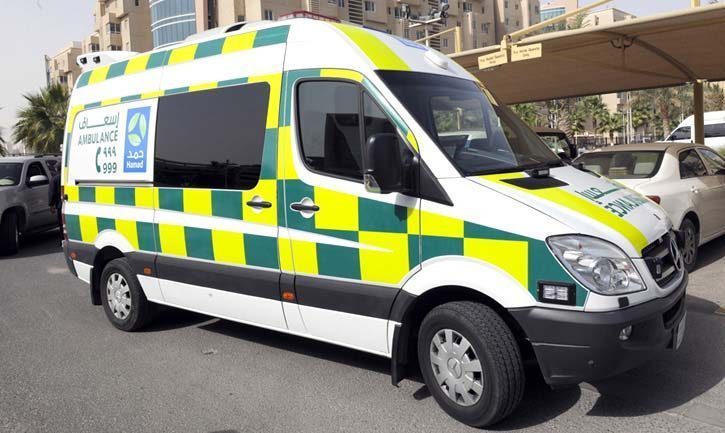
Qatar is ramping up efforts to respond to emergencies in the coming years, though problems persist because many 999 calls are not actual crises, a senior official has said.
In a recent interview, a senior Ministry of Interior (MOI) officials said a new building that will be able to house more operators and equipment is expected to be completed in two years, Al Raya reports.
Khalid Saleh Al-Ansari, the MOI’s chief of emergencies, said that the five-story building would increase the department’s units from 30 to around 70-80 units.
He added that the department currently consists of 126 operators and has the ability to receive 150 calls each hour.
Mouse in the oven
The department currently receives some 4,000 to 6,000 calls a day on the 999 emergency number, Al-Ansari said.

That number goes up to 7,000 during certain times of the year, including Ramadan and in the summer, when fires take place more frequently due to high temperatures.
Although around 90 percent of the calls do not involve life threatening emergencies, operators are required to answer all of them and have been trained to respond to any other queries, according to Al-Ansari.
He cited some of the funniest calls the emergency department has received:
“A while ago, we received a complaint from a woman shouting in the phone in a state of complete panic, demanding that the police patrol catch a mouse in the oven, saying that she can’t sleep if the mouse remains inside the house,” he said.
“Another complaint was from a person at a hotel complaining that his order of food and drinks was late…stating that he’d been waiting for more than half an hour for a cup of juice!”
Other comical situations included a man calling at 1am to demand that the birds that were hovering around his house be caught, because they prevented him from sleeping.
Al-Ansari added that another person called an ambulance to take him to the emergency room.
Once the medical check-up was complete and he was better, he called 999 to report that the ambulance car that brought him to the hospital refused to take him back home when he couldn’t find a taxi.
Serious matter
Humor aside, the official stressed that calling 999 for non-emergencies is a serious matter that could prevent those who are truly in need of urgent care from getting the help they need in time.

Al-Ansari also referred to children being a main source of false complaints and calls, especially during the summer when they have more free time.
He called on parents to raise their children’t awareness regarding this issue and prevent it from recurring.
In other countries, such as the UK, fines are being imposed for time-wasters and non-essential calls, the BBC reported last year.
Additionally, the UK has set up non-emergency lines some areas to take the pressure off the 999 service, while repeat nuisance callers are prosecuted.
But it is not clear if such measures would work here.

One long-time emergency room doctor in Qatar previously told Doha News that the 999 service is overused here because many expats cannot afford to seek treatment at the country’s private clinics and hospitals.
Al-Ansari also fielded questions about delayed responders, saying that one issue continues to be that callers often cannot give an accurate address.
He urged people to memorize or keep a photograph on their mobile phones of the blue plate that includes the building, zone and street numbers outside of their building, which is part of the online “My address” map service.
He added that these blue plates have reduced the tardiness of police patrols by around 50 percent.
Emergency services
Qatar’s emergency services line is manned in shifts around the clock by teams speaking eight languages including Arabic, English, French, Persian, Bengali, Tagalog, Urdu and Pashto, according to Al-Ansari.

Once a caller dials 999, they are put through to the most appropriate service for their needs.
This may be one of Hamad Medical Corp.’s highly-trained emergency medical dispatchers, who are the initial point of contact for getting an ambulance to an ill patient.
Qatar also has an emergency number for deaf callers, who can dial 992.
Al-Ansari said complaints are received through video calls, text messages and e-mail.
The service first launched in 2012 to quickly respond to complaints of those suffering from hearing impairment.
Thoughts?







